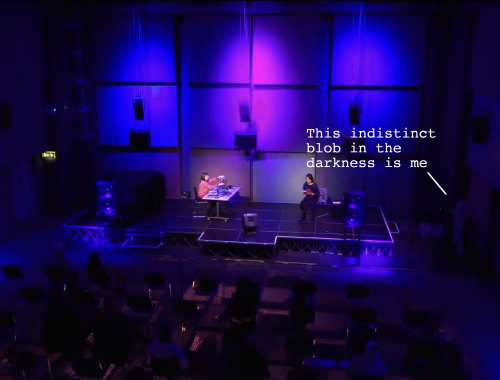Thrown in at the deep end
Reflective practice means that we learn by thinking about things that have happened to us and looking at them in a different way, which enables us to take some kind of action
Jasper, M, 2013, 3
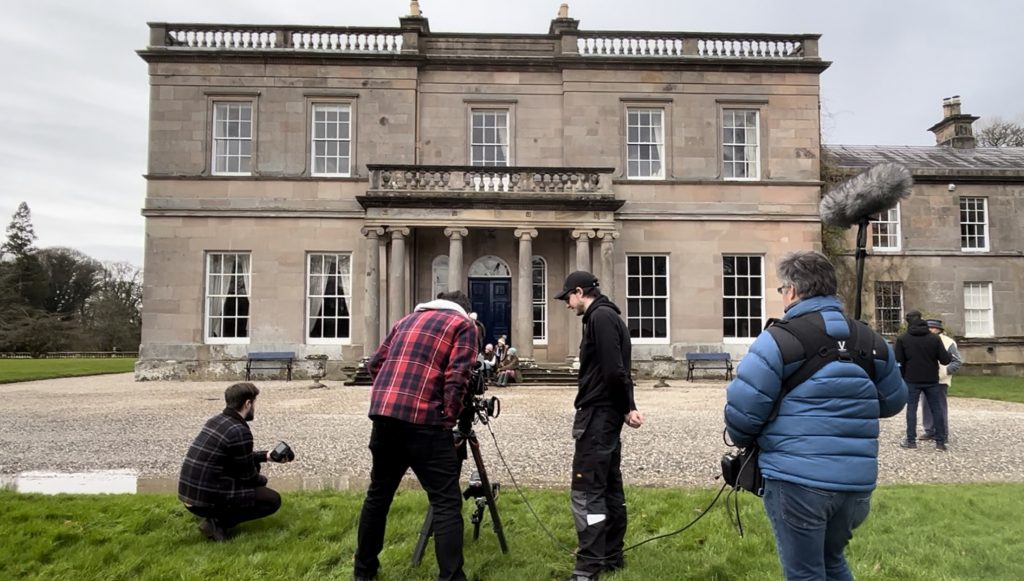
I’ve always approached new experiences with an open mind, a willingness to learn even if it means failing at first or embarrassing myself in the process. This was exactly the mindset I adopted when the opportunity arose to travel to Limavady and try my hand at transcribing and production running for NPL Media as part of my work-based learning module for Queens University. As the quote from Jasper above suggests, I have since reflected and pondered on this new experience and the obstacles that came along with it. In this blog post I will be using the Gibbs Reflective cycle to structure my analysis of the experience and how I overcame (or at least I think I did?) the daunting task of transcribing for a professional production company.
Description
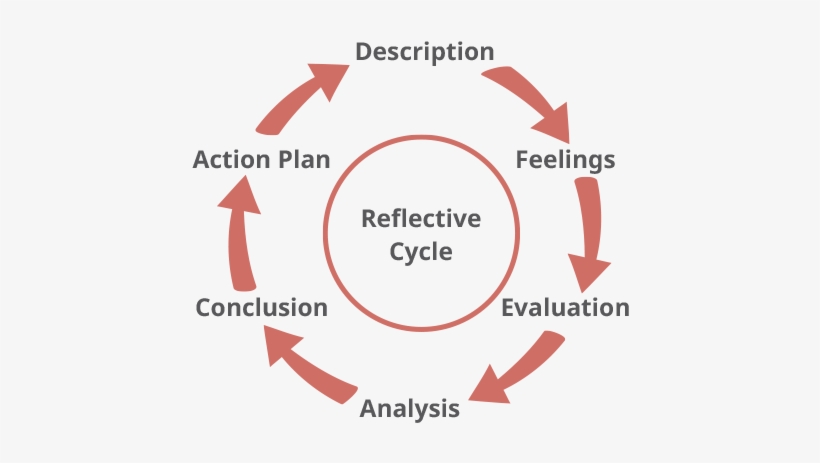
So, for the past few months I have been carrying out my work placement with NPL Media, helping with their shoots and learning along the way. However, the most challenging task ultimately presented itself last month when I was asked to make the journey to Limadavy to help out at a shoot at Drenagh Manor (pictured above). The shoot was for an Ulster Scots Heritage mini-series centred around the current residents at the manor, their renovation with the estate and an on-going discovery of their Ulster-Scots heritage. Throughout the experience I helped set up camera and lighting equipment while also acting as a runner for the day and being of service to the rest of the crew. However, to my surprise I was given the task of transcribing an interview between Irish historian, William Roulstan and Drenagh resident, Connally. Now, I don’t know if anyone can relate to this but I can tell you now that trying to transcribe Irish place names and surnames of Irish people on the fly whilst spelling them correctly and keeping up with the interview isn’t exactly my idea of an easy task. Hearing William reference the ‘Siege of Derry’ and looking down to see the transcribe app autocorrecting the sentence to ‘Siege of dairy’ didn’t exactly fill me with confidence. I followed along and did my best to correct mistakes throughout the hour long interview (which felt more like 5 hours at the time). I survived but only just. I can safely say being tasked with collecting sandwiches for the crew afterwards came as a welcome change of pace to the preceding task.
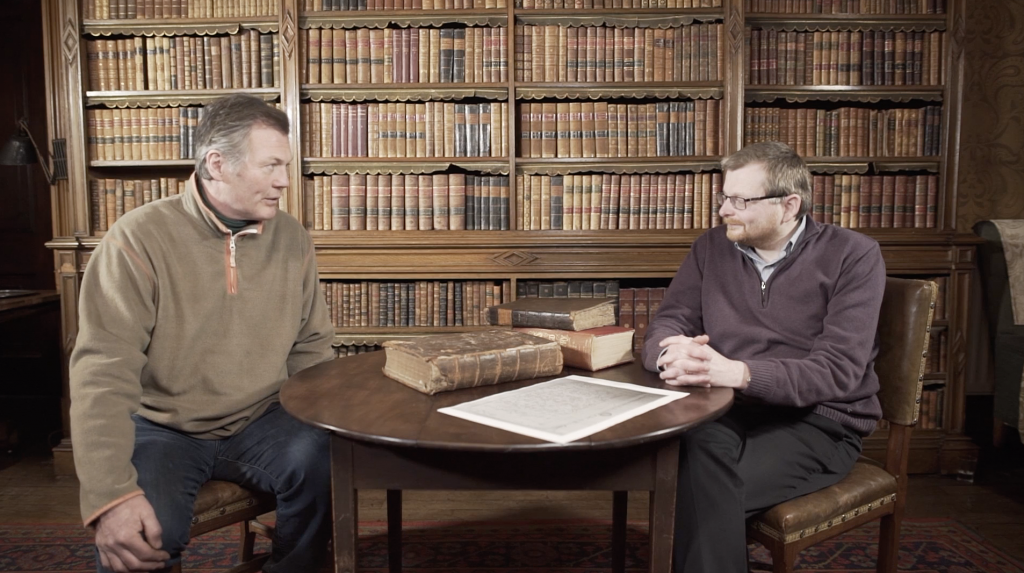
Feelings
I would be lying if I said I exited that room feeling calm and collected. A number of thoughts ran through my head. What if I’m told I haven’t done a good enough job? What if If the transcript has copied down a quote completely incorrect and it makes its way into the published interview text? I was feeling stressed. I was frustrated at myself for not being organised enough. Looking back on this experience I understand that what I felt was completely normal when facing a challenging task. After two weeks of reviewing and reflecting I feel significantly more confident in my approach to transcribing in the future and any further obstacles I may face while working at NPL Media. This understanding of my emotions surfaced only after I realised that the best way to improve is to face new tasks which place you out of your comfort zone. As Tom Chatfield puts it, ‘most of the time, we rely on general intuition about what not do, say and think. We wouldn’t be able to function if we had to think hard about every single action and decision in our daily lives’ (2018, 10). With this in mind, I realised that general intuition was my best asset under pressure.
Evaluation
So what went well and not so well during my debut transcribing a live interview? Well first of all, I was pleased to learn how to physically transcribe for the first. As someone who wishes to progress within the film and TV industry this is a very useful skill to acquire. Graham, the producer on set was very helpful and willing to explain the set-up to me, walking me through when to start a new paragraph, when to pause the timer and how to edit the text in real time. I found that my attention was split two ways; the direction of the spoken-word interview and the progress of the transcript on the monitor in front of me. It was ultimately a test in multitasking. What did not go to plan was my concentration during the interview. I found myself researching place names and Irish surnames mid-interview in order to make sure they were correct. This put me behind on timing, meaning more spelling mistake slipped my notice. It wasn’t the best strategy in hindsight.

Analysis
With every good reflective analysis of a situation, it is key to review the task from a number of perspectives. From a skill based point of view I can confidently say I have developed industry relevant team working skills as well as the ability to prioritise tasks and handle data; two of the skill outcomes for the work-based module. I have also undoubtedly been able to gain a greater sense of the proceedings and operation of a business by playing an active roll within the process of the filming. I am certainly glad I took this challenge on or I wouldn’t have consolidated these key ideas that I think are important to hone, especially within the film industry. ‘Reflection is turning a topic over in various aspects and in various lights so that nothing significant about it shall be overlooked’ (Dewey, 1993, 30). As Dewey suggests, my reflection wouldn’t be adequate without reviewing the task from various perspectives. Emotionally, I believe the transcription was stressful at the time because I let my emotions get the better if me. If I had accepted the fact that I was most likely going to be under pressure from the start I could have approached the task with an open mind and a willingness to ask for help afterwards in making sure everything was suitable for publishing. Looking back, I’m glad I was given the opportunity to try something new and I can proudly say that I am now confident in my ability to transcribe, even if it means I look like the frantic fast-typing cat…
Conclusion
As a whole, I learned that a small bit of preparation work can go a long way in helping the task run efficiently. Asking for formatting and timing advice from Graham prior to the interview would have put me in a good position from the offset. Instead of concerning myself with incorrect grammar and punctuation in the moment, highlighting or underlining the parts I wasn’t sure on would allow me to continue the ongoing task while making it easy to come back to my mistakes, carry out any further research that may need conducted in relation to names of places and people and correct them in due course. Overall, I am pleased with the progress I have been making and hope to refine my transcribing skills with every interview I do.

Action Plan
Moving forward, I will undoubtedly make use of my new acquired knowledge, especially since Graham has since asked me to transcribe a number of other activities for the ongoing mini-series. Personally, my goal for the rest of the upcoming shoots is to talk through the interview with Graham beforehand, make sure I ask any necessary questions during the intervals/ breaks in the interview and trust in my ability to carry out an effective job. Since the hardship of the debut transcript I have had time to practice on my own and refine my style. Not only will this help me be more efficient with my future transcripts but it will boast a new skill to my CV and widen my opportunities In the future as to what roles I may adopt on a film or TV set, ultimately making me more employable. So in theory, by the time the next opportunity comes around I’ll be well prepared. Well, that is unless the interviewees decide to speak a foreign language. In that case I’m doomed….
By Cameron Jenkins
Bibliography
Chatfield, T. Critical thinking, (California: SAGE Publications Ltd, 2018)
Dewey, J., How We Think, (Boston: DC Heath, 1933)
Jasper, M. (2013) Beginning reflective practice (Links to an external site.) Melbourne & London: Cengage Learning. Print book: Medical library RT73 JASP
Rain, Rain go to Spain!
You May Also Like
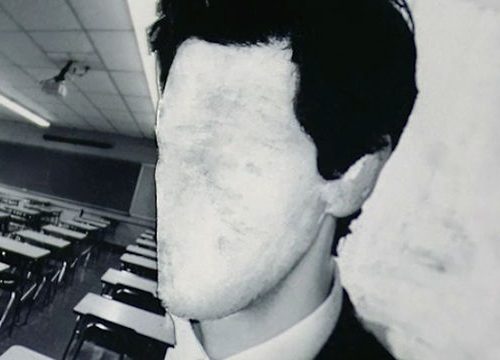
The Equity Of Detachment
25 March 2022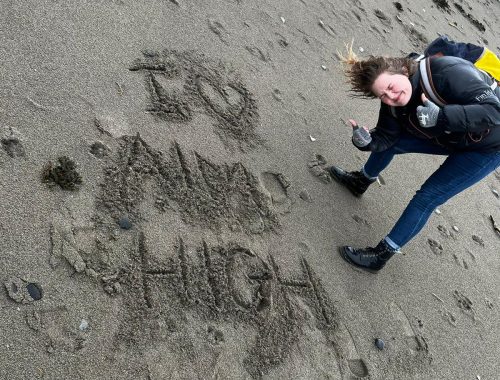
An Experience Never To Forget
1 April 2022